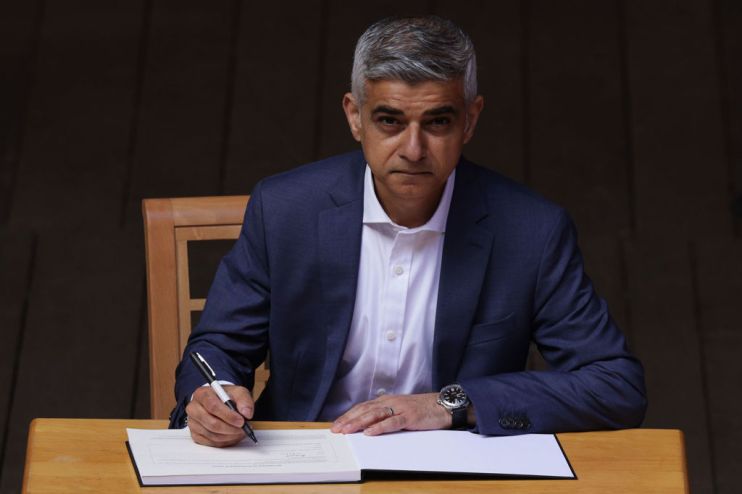An unholy alliance between the Tories, Greens and Lib Dems could hold Sadiq Khan’s feet to the fire

The London Assembly rarely cuts through in the news landscape. It’s committee structure does not quicken the pulse or stiffen the sinew. This is in some ways a pity, as the assembly has wide powers to scrutinise the activities of the elected mayor and can, in some circumstances, even amend his budget or reject strategic priorities.
Last week was the exception to the rule. The Labour party, who won 11 of the 25 seats in the assembly, managed to unite an unholy alliance of the Conservatives, the Liberal Democrats and the Greens. In negotiations for committee chairmanships, Labour, the largest party, would have taken five, the Conservatives four and one each for the Liberal Democrats and the Greens. Labour, however, pulled out of the talks at the last minute.
Instead of talks between the three remaining parties collapsing, they formed a united front and made their own deal. The Conservatives will now chair six committees, as well as providing the chair and deputy chair of the overall assembly, the Greens take three and the Liberal Democrats two. Labour are left with nothing.
It is an extraordinary outcome. The Labour Party quickly hit out at the smaller parties for “getting into bed with the Tories” and forming a “coalition”. Despite the dark talk of betrayal of “progressive values”, there is unease within Labour ranks, and some members feel that they have missed an opportunity and committed a major tactical error. Certainly, the result is that the mayor will face a more challenging, if not hostile, atmosphere when he submits himself to scrutiny.
Peter Bingle, the veteran public affairs adviser, spoke laconically of “interesting times in City Hall”, pointing to two committees in particular: Siân Berry, co-leader of the Green Party, will take charge of the housing committee, alongside Conservative Tony Devenish as deputy chair, and veteran Tory Andrew Boff, one of the party’s leading libertarians, will head the planning and regeneration committee, with Berry as number two. As the city and the country focuses on post-pandemic growth and rebuilding, these are critical areas in which the assembly opposition has seized an important scrutiny power.
The assembly’s committees miss the headlines for one obvious reason: they lack much ability to initiate or drive forward positive plans. There are no star-power chairs who catch the public eye in the way some House of Commons select committees do.
But the cooperation between three radically different opposition parties, even for a one-time deal, has caught the public mood. With the unwitting collusion of the Labour Party itself, the opposition parties have managed to cast themselves as practical politicians keen to “get on with the job”, while Labour looks like a group of squabbling toddlers sent to the naughty corner. They have reached across the party divide, while Labour seem inflexible and divisive.
There is an opportunity to prevent the death of ideas in London’s frontline politics from becoming endemic. Khan’s first, extended term was lacklustre in terms of achievements, with too much time spent positioning himself against the government and, many believe, keeping one eye on the leadership of the Labour Party. Crime has risen and Transport for London lurches from one financial crisis to another; there has been no adequate house-building programme and too many of Khan’s promises have been nebulous virtue-signalling like “standing up for Londoners’ values” and “opposing austerity”.
The next mayoral election is only three years away.
There is an opportunity for the opposition parties to put in the heavy lifting in committees, hold the mayor’s feet to the fire but also to explore and map out new ideas and policies to take the capital forward over the next few terms. The resources are there: think-tanks and academic institutions are teeming with schemes and wheezes to lift London out of the pandemic gloom, adjust to the new ‘Global Britain’ and solidify its position as one of the world’s most vibrant, prosperous and successful urban centres. Maybe the internal melée has uncovered a valuable flower. Let us hope that the political parties have the wit to nurture it.